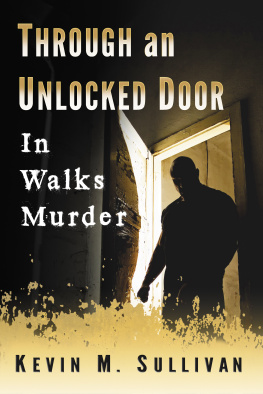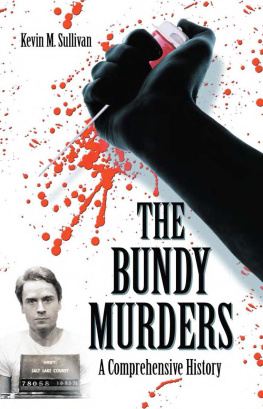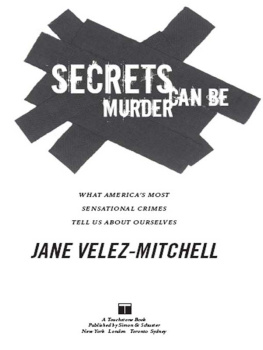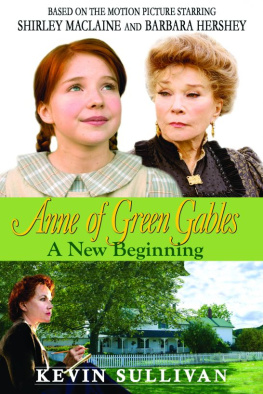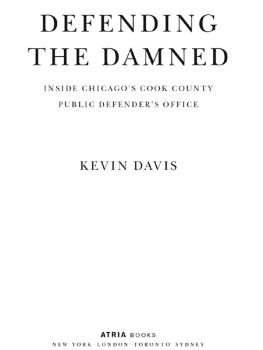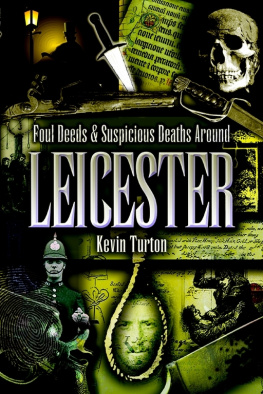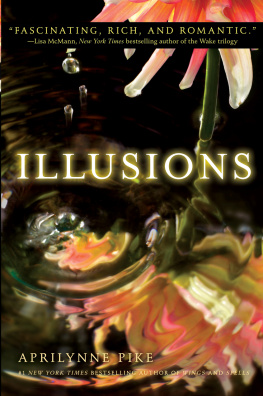
Also by KEVIN M. SULLIVAN
The Bundy Murders: A Comprehensive History
(McFarland, 2009)
Through an Unlocked Door
In Walks Murder
KEVIN M. SULLIVAN


Jefferson, North Carolina
LIBRARY OF CONGRESS CATALOGUING DATA ARE AVAILABLE
BRITISH LIBRARY CATALOGUING DATA ARE AVAILABLE
e-ISBN: 978-1-4766-3149-3
2018 Kevin M. Sullivan. All rights reserved
No part of this book may be reproduced or transmitted in any form or by any means, electronic or mechanical, including photocopying or recording, or by any information storage and retrieval system, without permission in writing from the publisher.
Front cover photograph by Damir Spanic (iStock)
Exposit is an imprint of McFarland & Company, Inc., Publishers
Jefferson, North Carolina


McFarland & Company, Inc., Publishers
Box 611, Jefferson, North Carolina 28640
www.expositbooks.com
To my wife, Linda,
who has been with me
every step of the way
Preface
This is a book about crime, much of it violent crime. Its also a book about society, its view of crime, and its preparation or lack of preparation for it. Indeed, as we shall see, when it comes to crime, people often harbor very different beliefs about the possibility of violence entering their lives. For many, the thought of what, if anything, they should do about it, just in case, doesnt register within. Even the remotest thought of something coming their way that could result in their own murder, or the murder of their children, just never takes hold in their consciousness. And while the majority will gladly buckle up as soon as they enter their cars, knowing the seatbelt may save their lives, for too many, such thoughts of self-preservation and deliverance are not a consideration. And this, to me, raises the simple question: Why is this? Why is there such a mental unpreparedness for such things? Well, if you stand back and look at the situation it becomes quite clear, and thats what this book is all about.
The bottom line is this: I want folks to become more aware of the terrible things that can and do go on in the world, and to at least consider the possibilities that perhaps a little preparation on their part just might be in ordermuch like a seatbelt saving one in a terrible auto accidentshould an unthinkable evil come their way.
There is a scene in the movie Sea of Love in which Al Pacino, playing a New York homicide detective, is pointing out to Ellen Barkin where certain murders have occurred. He then explains to her that cops see the world differently from the rest of society, which by and large is true. Its just the way it is when youre immersed in the world of violence and murder. And it is my hope that by the time you finish this book, youll be thinking differently too.
Introduction
Everything is normal until its not. That is something Ive believed for most of my life. And when I say most of my life, I mean that literally. When I was ten years old, I picked a book off my fathers library shelf titled The Worlds Worst Murderers, by Charles Franklin. Franklin was a British author, and his book was published in England in 1965, along with an American debut that same year.
I remember being quite intrigued with it the moment I looked at the cover. Being just 10, I cant say I knew a lot about murder. In fact, I cant recall knowing anything about it. But no matter where I was mentally or emotionally concerning this very dark and regrettable subject, I was riveted from the moment I read the first page. I dont believe my parents knew I was reading this adult true crime book, but my mother soon learned about it when I came to her asking her how to pronounce certain words, and asking her what those words meant. I didnt have to ask her a lot, mind you, as I had a good grasp on language even at that young age. And within several weeks I finished reading my first true crime book. Needless to say, I never again read a kids book, except when I was required to do so in school.
Two years later, in September of 1967, a Louisville police officer by the name of William F. Meyer, 33, was shot and killed about a mile from our house, after he had cornered some men who had robbed the A&P supermarket on Bardstown Road, a market that I was in at least once or twice a week with my mother. (I would, a few years later, go to school with the slain officers son, William Meyer.)
Fortunately, although the killers fled Kentucky, they were apprehended and returned to the state to stand trial. Because I was interested in the case, I asked my father, who was an attorney, if I could sit in on the trial for at least a day or two. My dad agreed (I never asked him if he thought it was weird), and when he took me to the court, he instructed a court bailiff he knew to keep an eye on me, and he told me at least three times I was not to leave my chair. He would return for me, he assured me, after the court recessed for lunch. I agreed to his demands, and within moments I was watching the proceedings.
I remember staring at these four killers (there was a fifth, but I believe there were only four present when I was there), sitting in those large, heavy captains chairs so prevalent to court settings. I kept thinking, Why is it they think this way? Why would they kill an innocent man, with a family, just because he stopped them from getting away with a robbery? I also noticed one of the killers was slouching in his chair, and I thought, Does he have any idea how bad this looks? Did his parents not teach him to sit up in a chair, especially when something serious is going on? But in truth, they probably didnt teach him that, or many other things. In any event, he was facing a charge of murdering a police officer, and the death house was staring him in the face.
I wasnt present at the end of the trial, but all four menCarl Sims Pankey, Leonard Thomas Pope, Leonard Daniel Spears, and Verser Joseph Swaitewere convicted of the willful murder of Louisville policeman William F. Meyer Sr. According to the Louisville Courier-Journal article, published on July 17, 1968, upon sentencing, The men showed little apparent emotion. Pankey and Swaite again proclaimed their innocence, but Pope and Spears made no statement. Although originally sentenced to death in the electric chair, the men would receive life sentences. As of this date only Verser Swaite remains in prison. Hes 75 and will likely die there.
So you can see that my interest in true crime goes back to when I was just a boy. And while I wouldnt write my first true crime story until I was a little past 40 (I was in the Christian ministry for many years), I was, from the time of my youth, quite aware that bad people and evil can be anywhere at any time, and that, to a great degree, our deliverance from evil may depend more on us than the perpetrator. And to take it one step further, if there are steps we need to take and we fail to do so, if something bad does come our way, we will not be prepared for it. And this is the reason I wrote this book.
Next page
